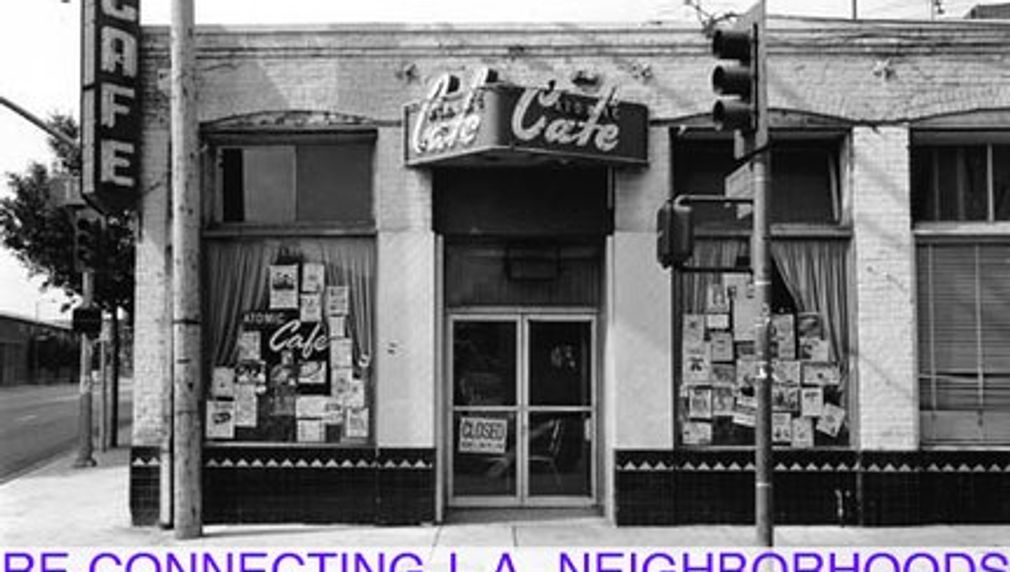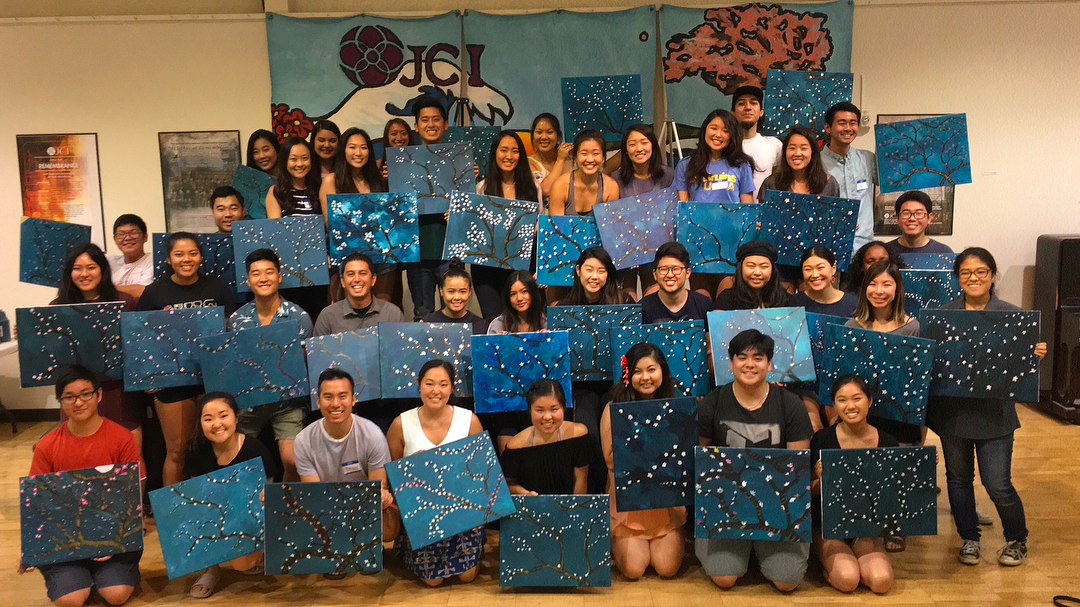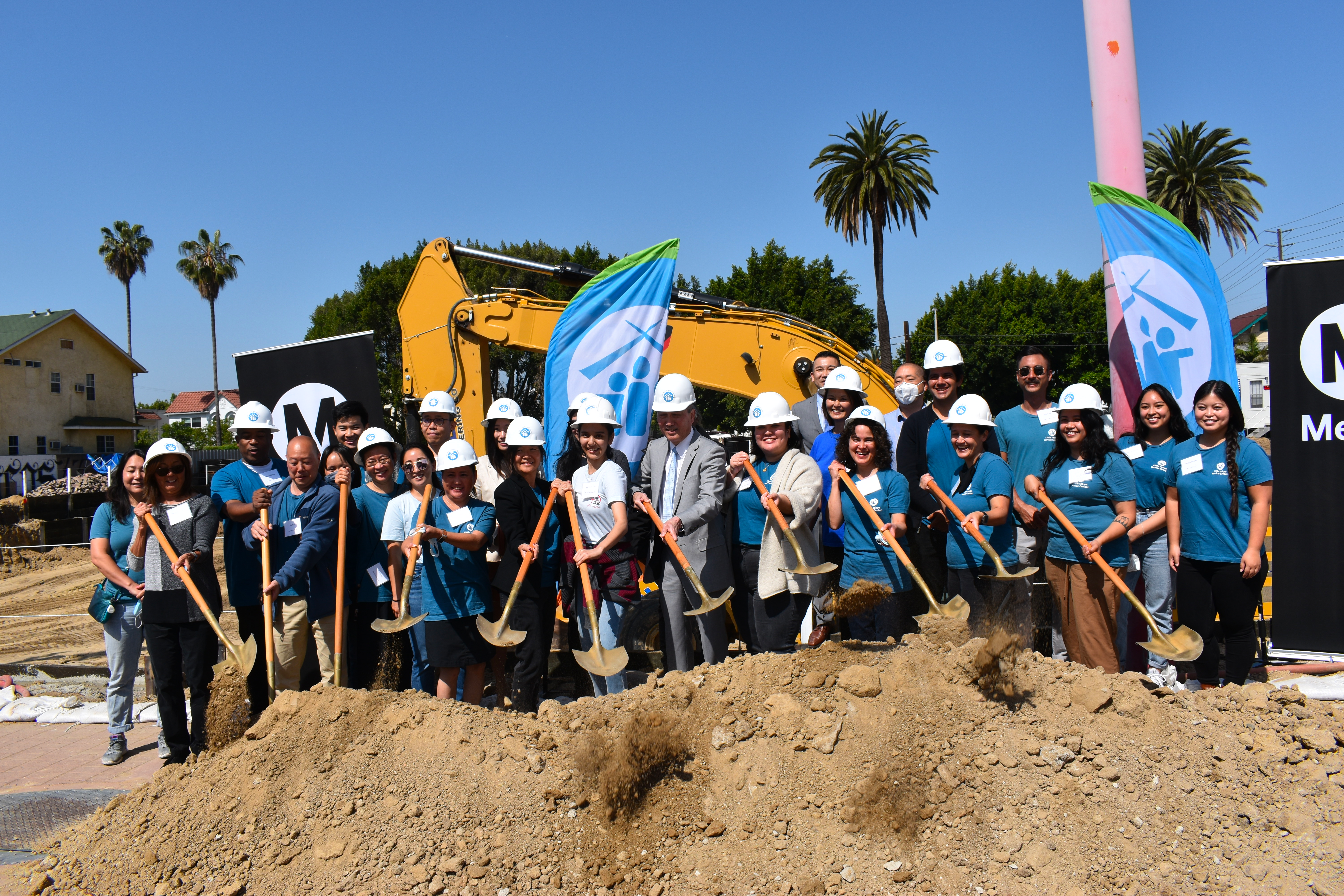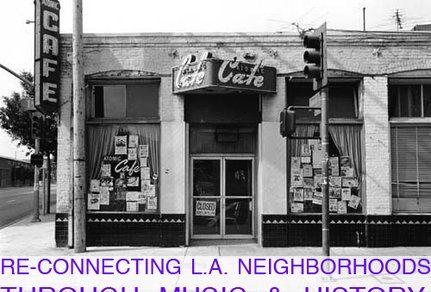LTSC Community Development Corporation
For over 30 years LTSC has been serving the Japanese/Japanese American community in the Greater Los Angeles area as the only regional provider of bilingual and bicultural social services. LTSC reaches 18,000 people each year. A significant proportion of our clients come to us from the broader Japanese/Japanese American community members who seek services such as child abuse prevention, consumer education, senior services, case management, individual and family counseling, and cultural education for children and youth.
As part of our community development work, LTSC has made significant efforts to revitalize Little Tokyo into a vibrant community. LTSC has worked in partnership with other entities to designate a major portion of Little Tokyo as a National Historic Landmark. LTSC has renovated and upgraded three buildings in the historic district:
*San Pedro Firm Building. This 1923 building was threatened with demolition by the City but quick action by LTSC and community advocates saved the building. After a $3 million renovation, it now provides 42 units of safe, clean, affordable housing to low-income seniors and other residents, and commercial space to longstanding and new small businesses.
*Old Union Church Building. Immediately next-door to the San Pedro Firm Building is the historic Old Union Church, one of the earliest Japanese American Christian church structures built in Los Angeles. In the 1970’s, the church congregation relocated and the aging building suffered in the ensuing years from neglect. Again LTSC led the effort to raise $4 million to bring this building back to life and now this once abandoned space is The Union Center for the Arts. *The Historic Far East Building with its famous Far East Café is located in the heart of the Little Tokyo Historic District, bearing witness to the birth, growth and development of what was, during its heyday in the 1920s and 30s, the largest Japanese American community in the mainland United States. After suffering severe damage during the 1994 Northridge earthquake, the building’s future was uncertain, possibly taking with it all of its history. LTSC was able to save the building to keep this part of Little Tokyo’s history alive. *Casa Heiwa. Additionally, in 1996 LTSC completed the first new family-oriented housing project to be built in Little Tokyo in over 70 years. Through LTSC’s community organizing efforts we have established relationships with Little Tokyo residents and have taught them to collectively and formally represent their concerns. Moreover, we have worked with residents to develop a model for community involvement in planning. With our support and guidance, the residents have lobbied for two crosswalks, a post office and helped successfully fight to preserve affordable housing at a 100-unit building. They have also lobbied against a proposed 500-bed jail and have fought to limit bail bonds businesses in the area.
Visit this organization’s website to volunteer
Learn about this organization’s budget, leadership and mission

3 Submitted Ideas
 CONNECT ·2022 Grants Challenge
CONNECT ·2022 Grants ChallengeChanging the Tide on Mental Health

There is dire need to address the current mental health crises impacting AAPI youth in Los Angeles. Mental health services can be inaccessible for numerous reasons: stigma surrounding mental illness, lack of access to culturally-sensitive providers, language barriers, economic instability, and unavailability and inaccessibility of services. The goal of Changing Tides is to reduce these obstacles and provide an accessible, transparent, and inclusive opportunity to obtain mental health services.
 LIVE ·2022 Grants Challenge
LIVE ·2022 Grants ChallengeLittle Tokyo’s compassionate response to homelessness

Our unhoused neighbors in Little Tokyo need help now. LTSC has been serving this community for over 40 years and is well positioned to lead a community effort to develop a humane and compassionate response to the crisis. Relying on its experience building affordable housing, providing social services and engaging with the community, LTSC will establish a community-driven approach to homelessness in Little Tokyo with one-on-one case management, permanent supportive housing and working with the community to find common ground.
- 2013 Grants Challenge
ReConnecting L.A. Neighborhoods through Music & History

The ongoing development of LA’s light rail network is one of the city’s largest transportation investments since the construction of the original freeway system and will undoubtedly shape the future of LA. Then as now, this construction is happening in the middle of existing neighborhoods, providing new opportunities while threatening the social fabric of established communities.
LA Metro is about to start construction of the Little Tokyo/Arts District Regional Connector Station, starting with demolishing all buildings at the southeast corner of 1st/Central. One of these buildings, now home to Senor Fish restaurant, previously housed Atomic Cafe and the Troy Cafe, which were for decades significant cultural and social anchors for Little Tokyo, Boyle Heights, and the Arts District. While the light rail network physically connects LA’s neighborhoods, we have a short window of opportunity to shed light on a little known part of LA’s history and create human connections that will last for generations.
This project proposes a creative placemaking project centered around the station, slated to begin construction at the beginning of 2014. We propose 2 interconnected projects: (1) the launching of a campaign to create a permanent art installation in remembrance of the vibrant and historic LA music scene of the Atomic Café, Troy Café, and the Arts District with a kick-off celebration in Fall of 2013; and (2) a campaign to preserve the original building, scheduled for demolition by Metro, that housed both the Atomic Café and Troy Café, and served as a common meeting space for artists from Little Tokyo, Boyle Heights, and the Arts District in the ‘80s and ‘90s.
The Little Tokyo/Arts District station site is an important, but relatively unknown, marker in the history of Los Angeles’ music community. The Atomic Café, a long-time local Japanese neighborhood restaurant, was transformed in the early 1980s into one of the City’s hottest gathering spots for the burgeoning punk rock scene. Bands from across the nation and even from overseas could be found hanging out with the locals afterhours on a regular basis. According to its owner, Blondie, The Go-Gos, X, David Byrne, and David Bowie were among the Café’s patrons. Although the Atomic Café closed in the late ‘80s, the space maintained its artistic and musical spirit as the Troy Café in the ‘90s, hosting a vibrant Chicano music scene and serving as a critical venue for Boyle Heights and Eastside community musicians. Nearby, in the LA Arts District, places such as Al’s Bar stood for many years as another focal point and launchpad for local artists and musicians emerging from the underground scene to national and international prominence.
Our first project is to launch a campaign for a permanent art installation to capture this rich history by (a) gathering stories through one-on-one interviews, (b) creating an interactive platform for all Angelenos with a connection to these venues to share their stories, and (c) celebrating this movement with a live program in the fall of 2013.
Our second project is a campaign to preserve and relocate all or part of the original Atomic Cafe building located at the station site. When completed, the Little Tokyo/Arts District RCS will be one of the busiest transit hubs for Metro’s light rail station, providing access to 90,000 passengers every day and attracting visitors, investors, and developers to Little Tokyo and the Arts District. However, the station will eliminate this cultural gem and clear away a rich history. Instead, we want to preserve it future generations. In the face of this imminent loss, we will knit together three neighborhoods - Little Tokyo, the Arts District, and Boyle Heights - with all Angelenos in a celebration of music, culture, and history. We will work with historic preservation, engineering, and design consultants on a preservation and relocation solution. Metro requires that the building be relocated by the end of 2013, otherwise it will be demolished taking with it this piece of Los Angeles’ history. We hope to catalyze a local and regional scale social connectivity that will last for generations of Angelenos to come.